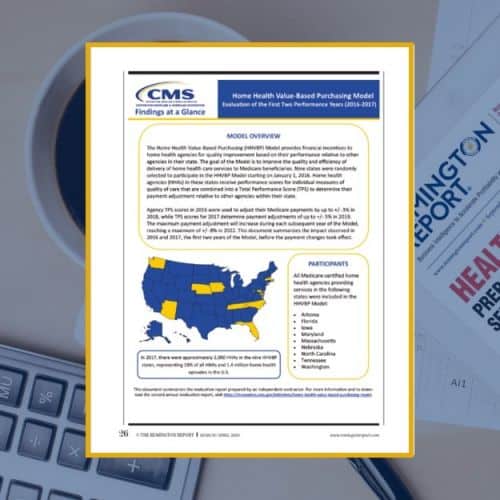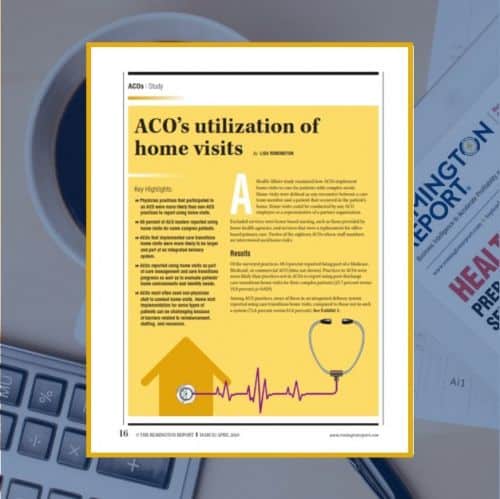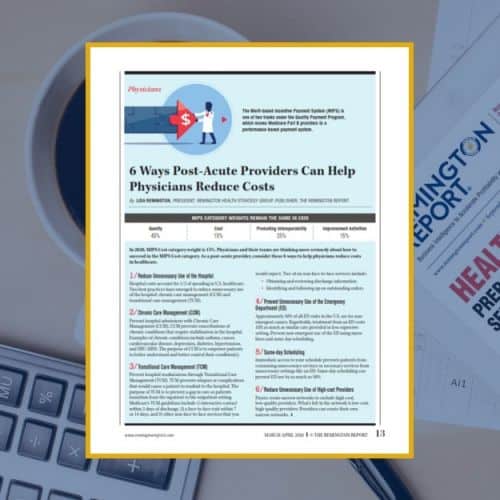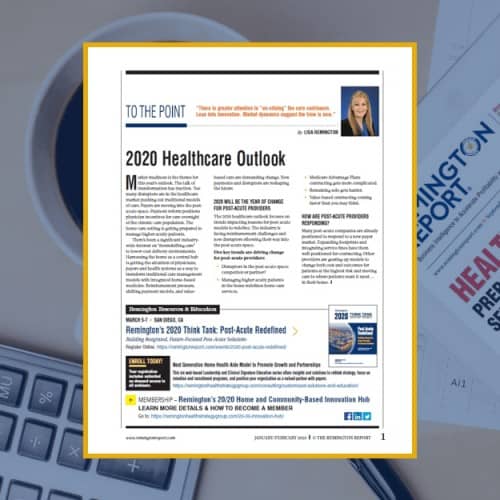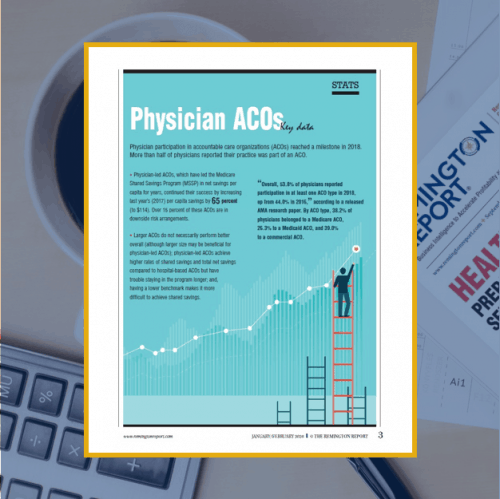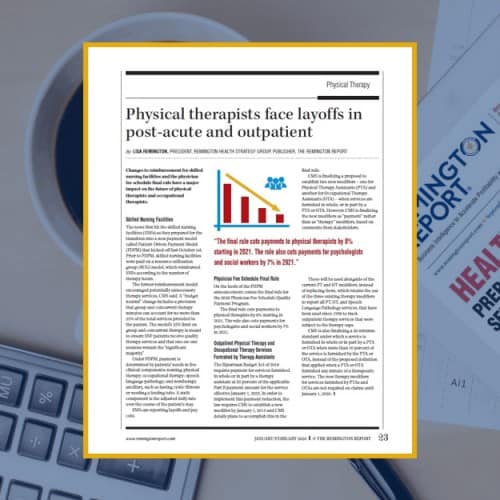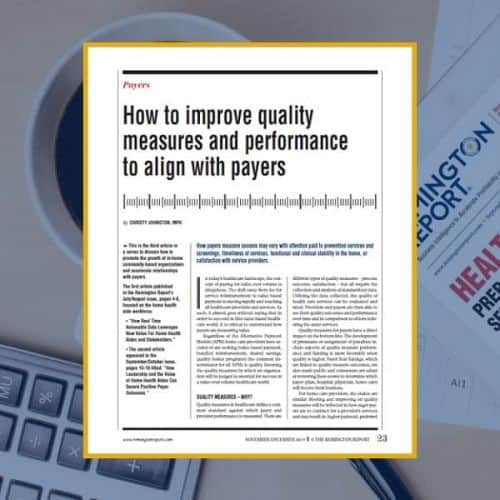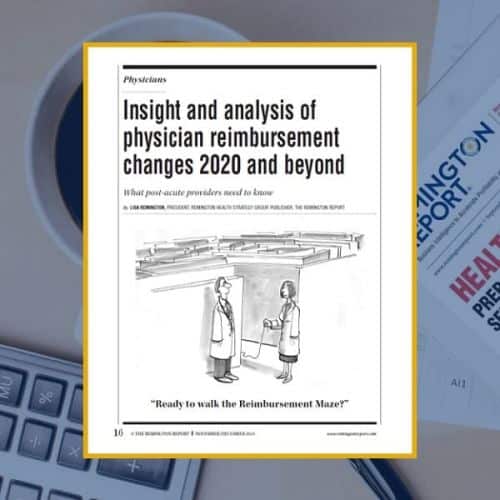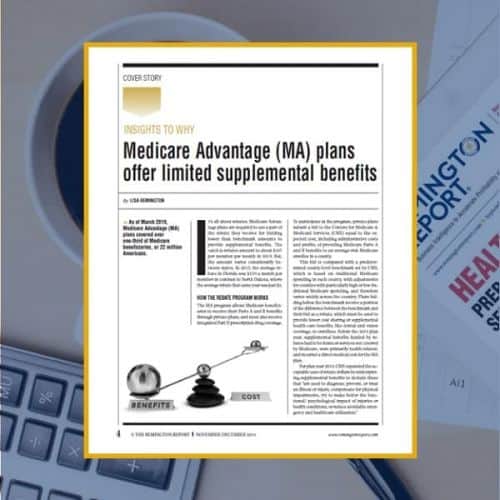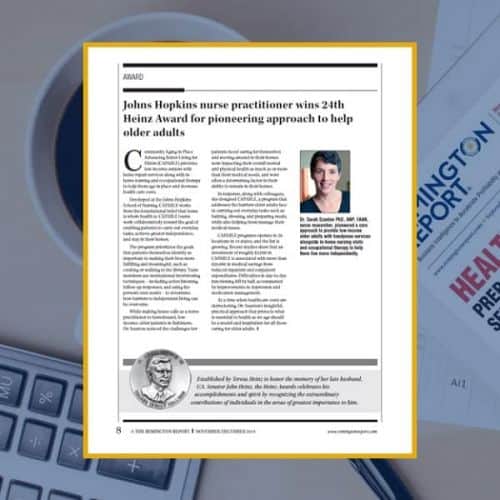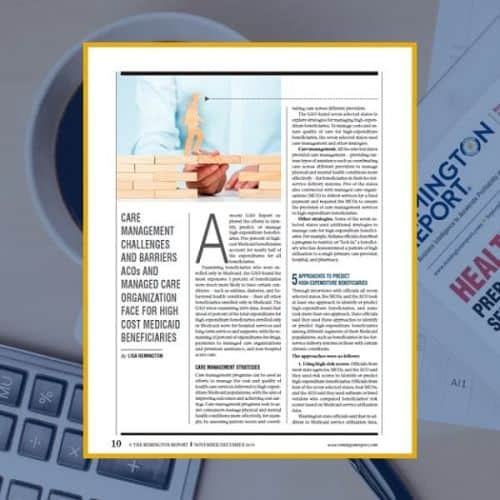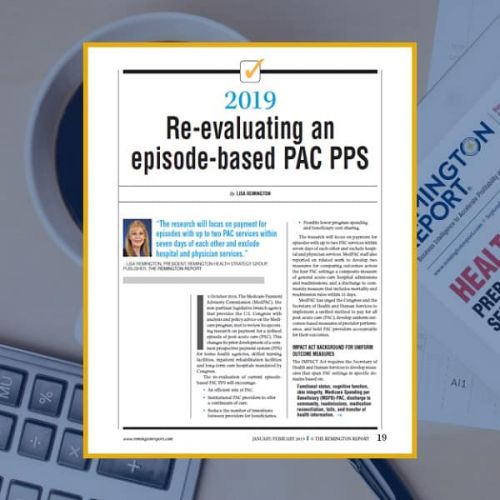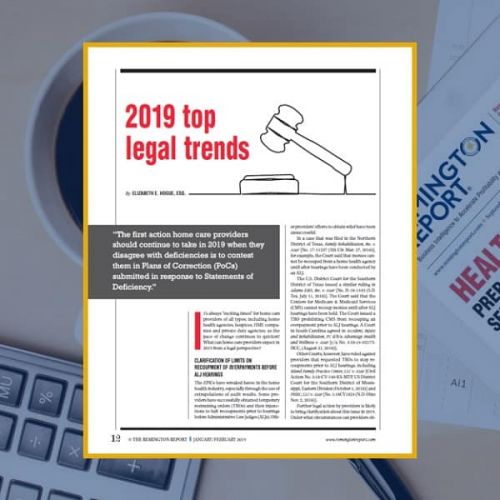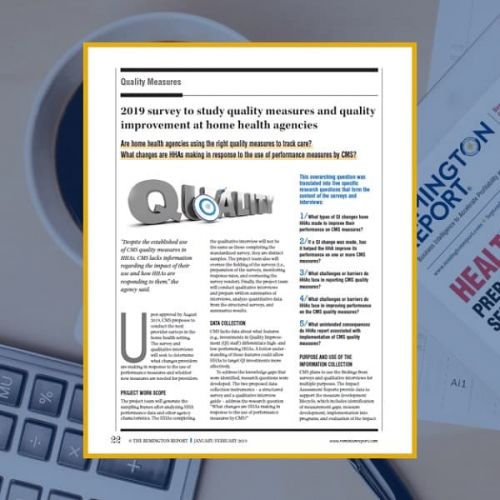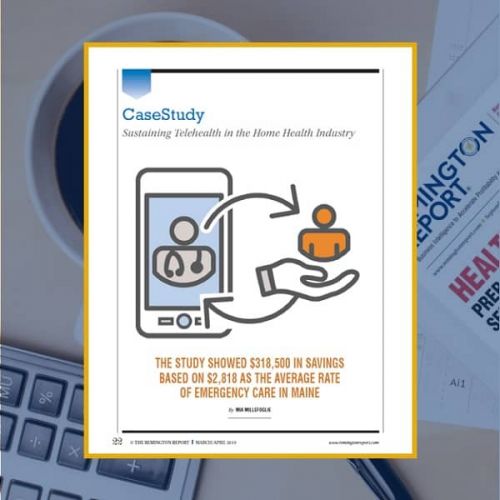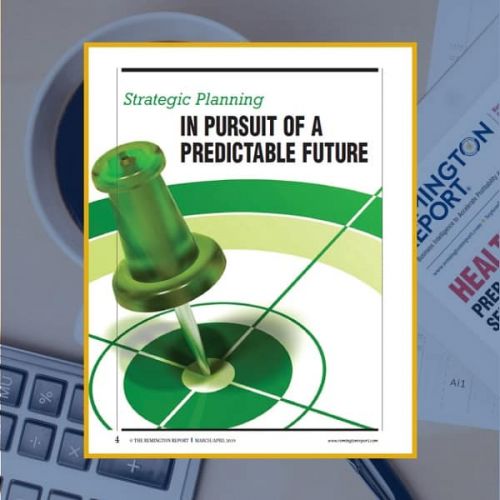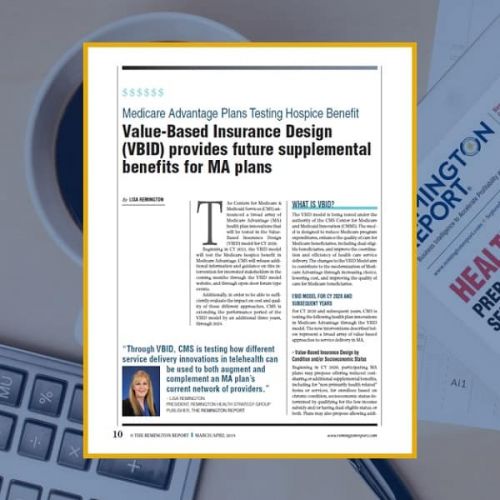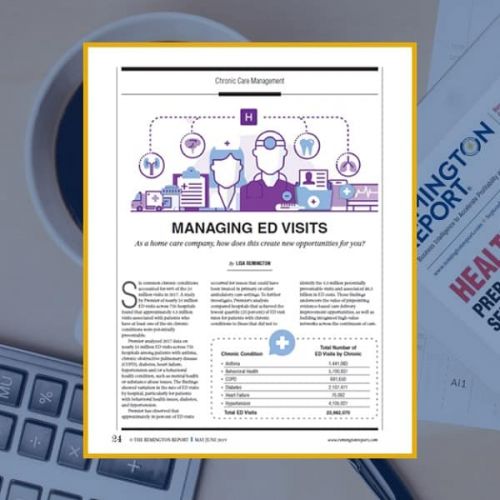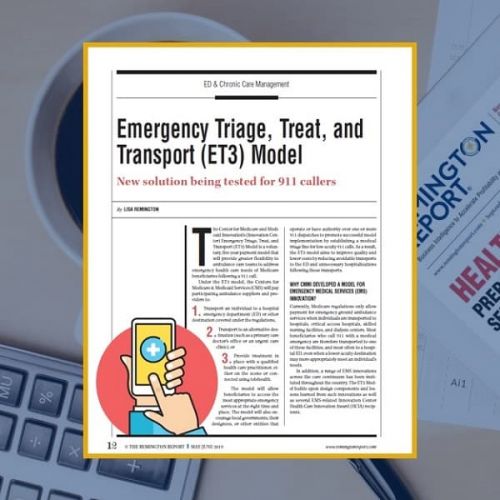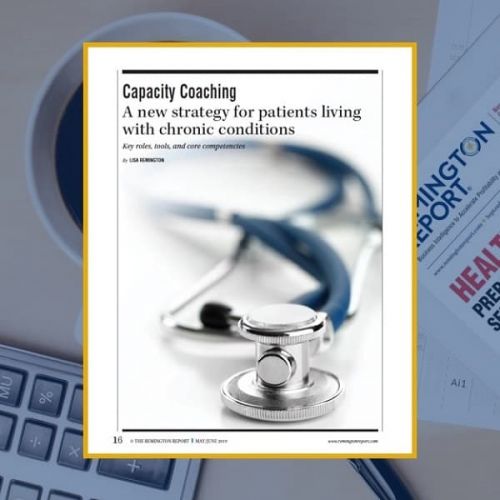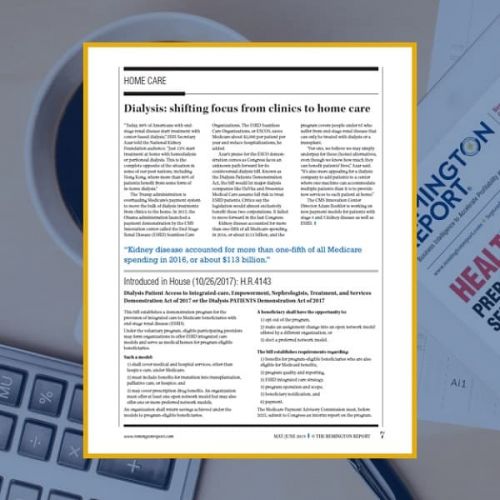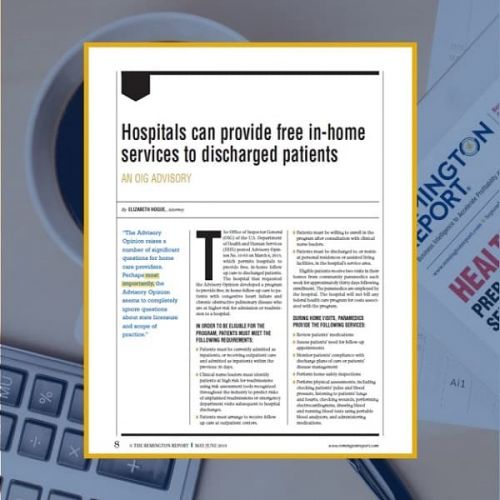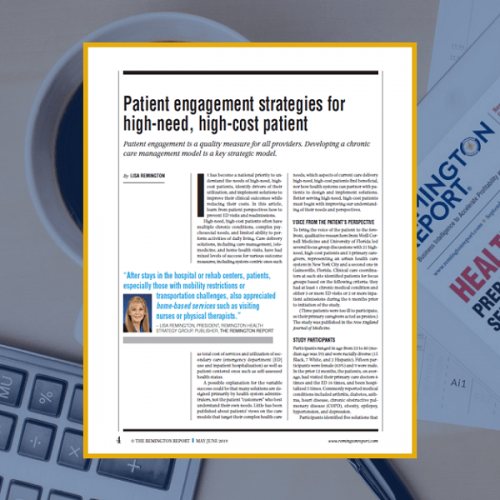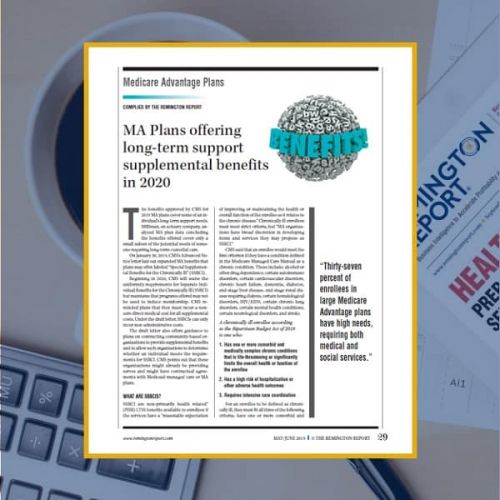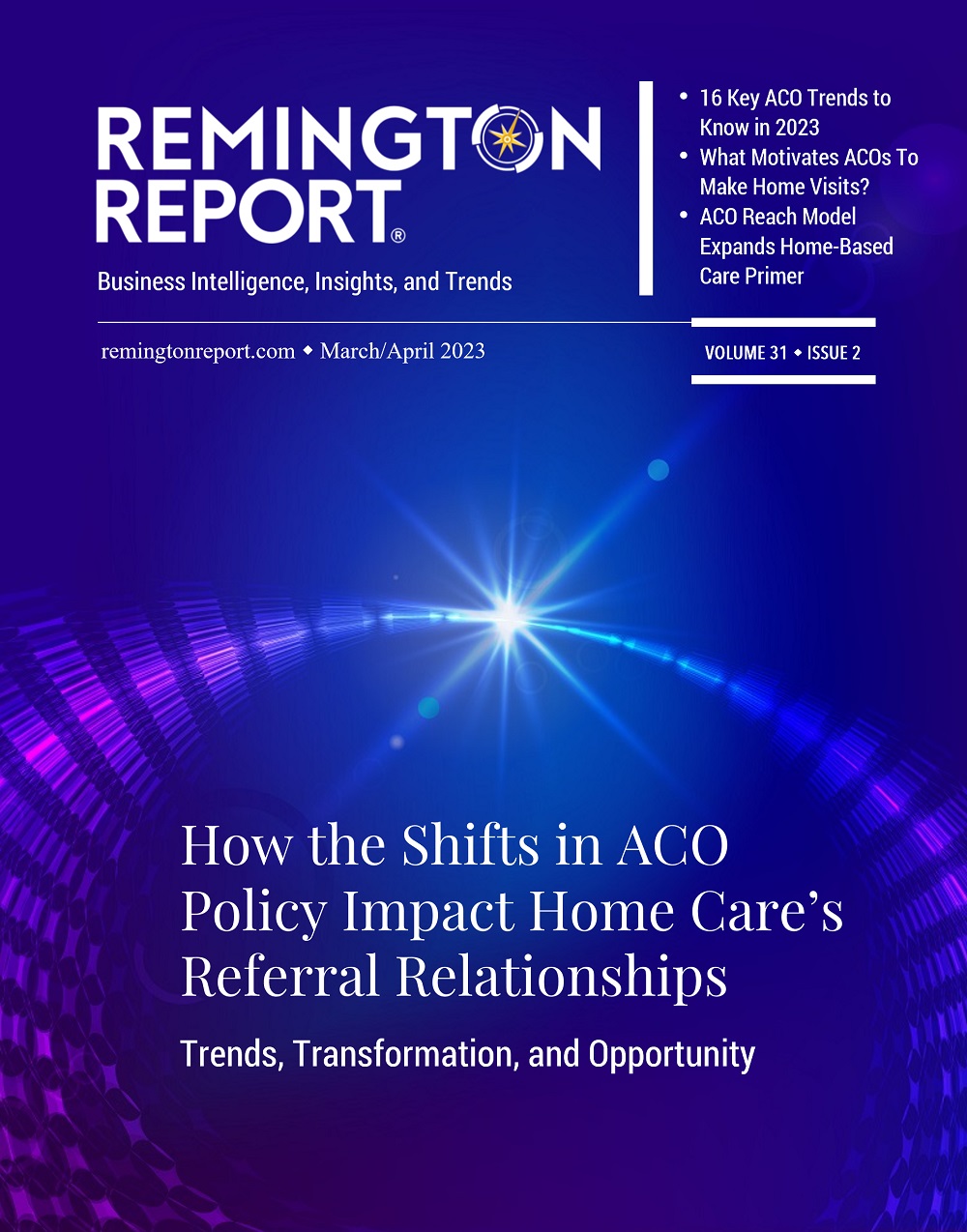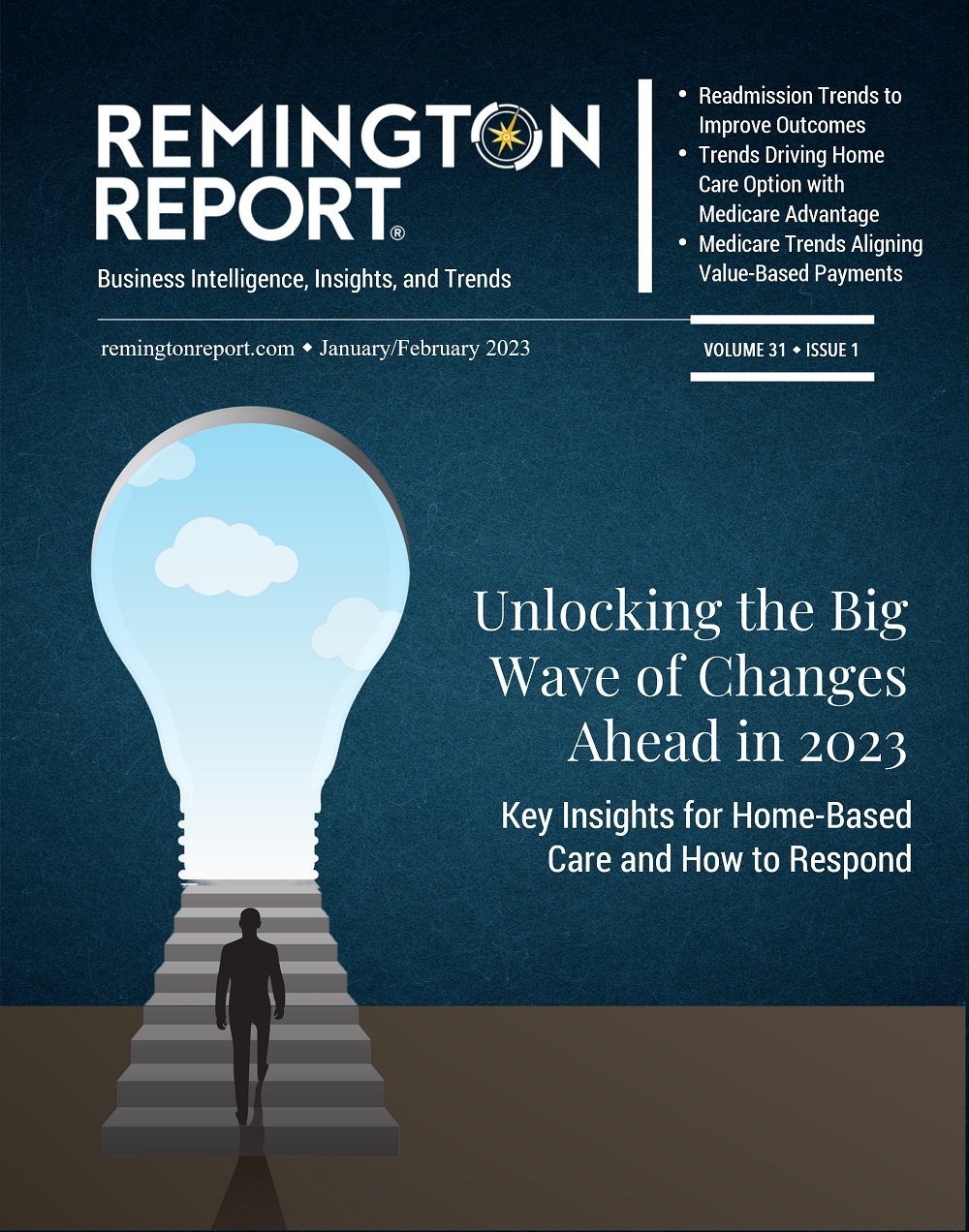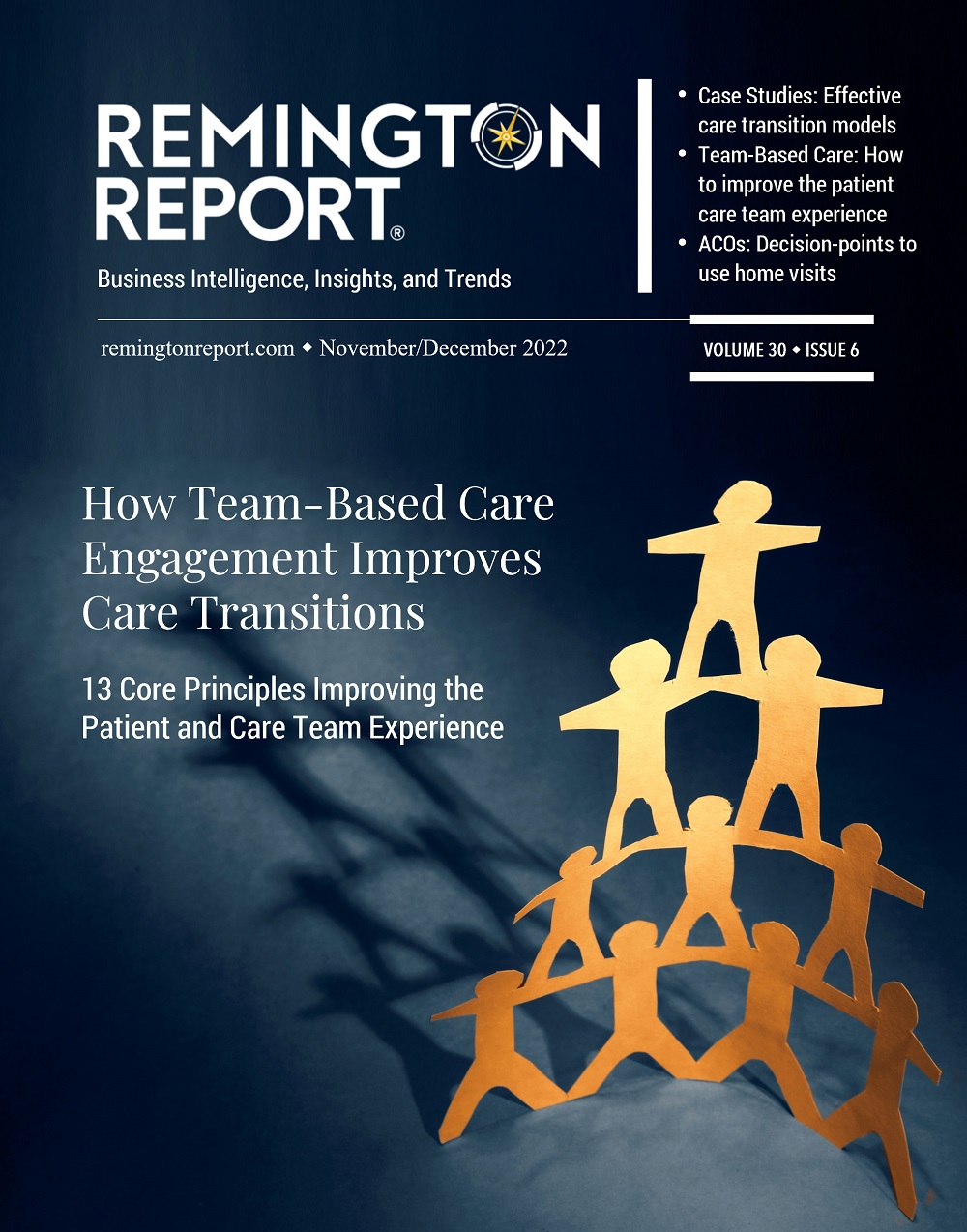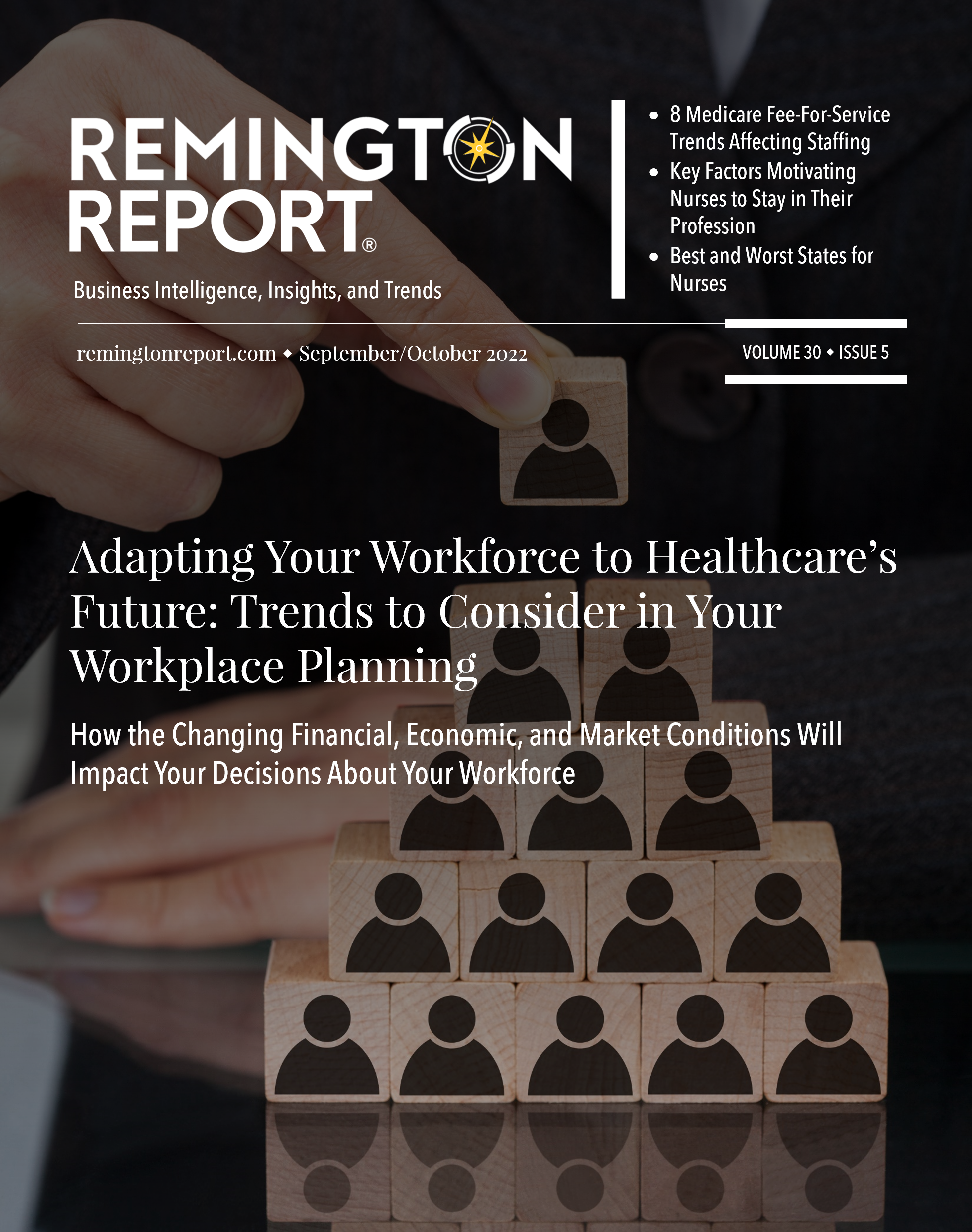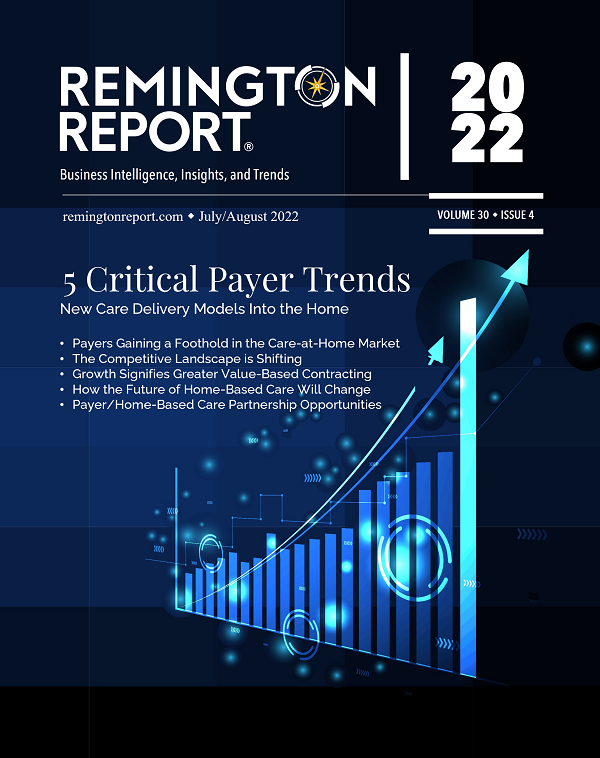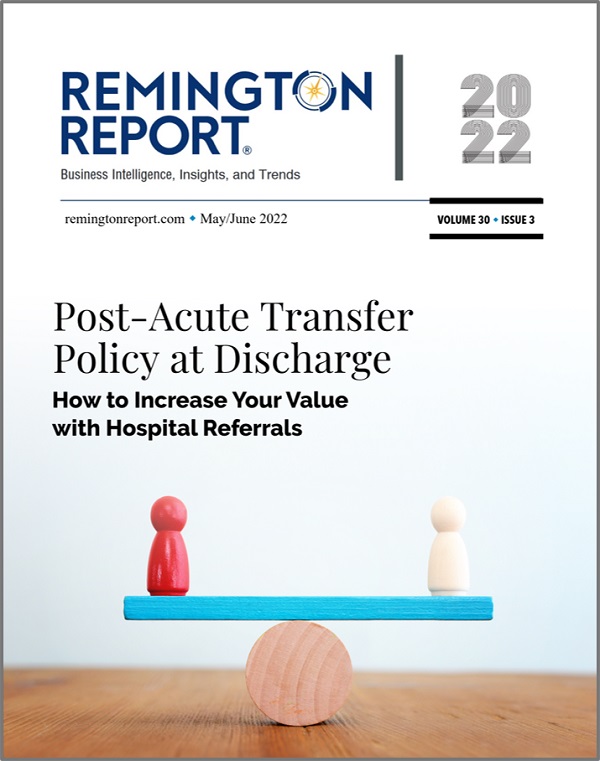-
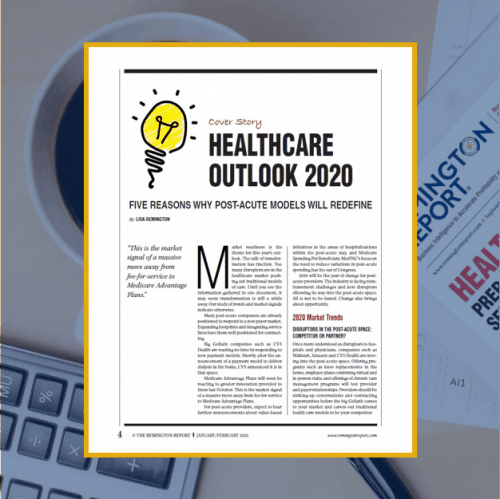 Market readiness is the theme for this year?s outlook. The talk of transformation has traction. Too many disruptors are in the healthcare market pushing out traditional models of care. Until you see the information gathered in one document, it may seem transformation is still a while away. Our study of trends and market signals indicate otherwise. This article is free to 1-Year Classic and 2-Year Premium subscribers.
Market readiness is the theme for this year?s outlook. The talk of transformation has traction. Too many disruptors are in the healthcare market pushing out traditional models of care. Until you see the information gathered in one document, it may seem transformation is still a while away. Our study of trends and market signals indicate otherwise. This article is free to 1-Year Classic and 2-Year Premium subscribers. -
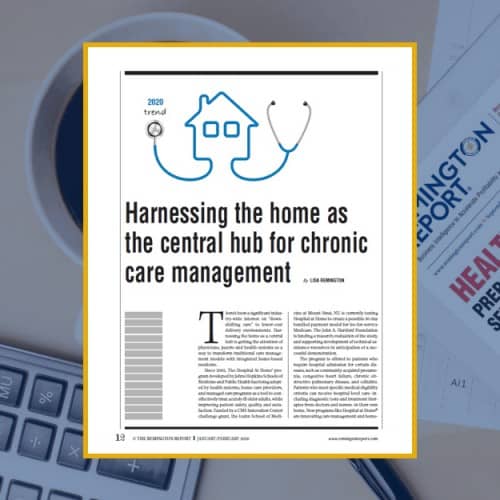 There?s been a significant industry-wide interest on ?downshifting care? to lower-cost delivery? environments. Harnessing the home as a?central hub is getting the attention of physicians, payers and health systems as a way to transform traditional care management models with integrated home-based medicine. This article is free to 1-Year Classic and 2-Year Premium subscribers.
There?s been a significant industry-wide interest on ?downshifting care? to lower-cost delivery? environments. Harnessing the home as a?central hub is getting the attention of physicians, payers and health systems as a way to transform traditional care management models with integrated home-based medicine. This article is free to 1-Year Classic and 2-Year Premium subscribers. -
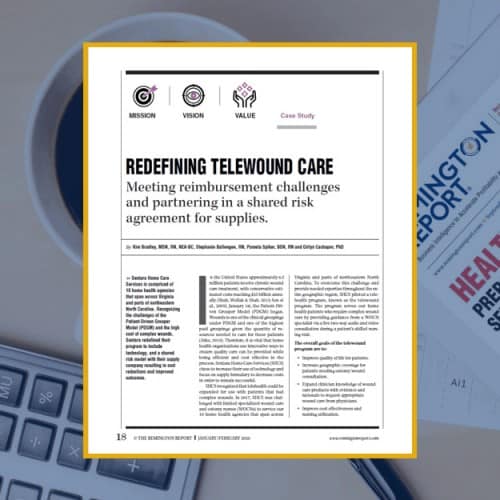 Sentara Home Care Services is comprised of 10 home health agencies that span across Virginia and parts of northeastern North Carolina. Recognizing the challenges of the Patient-Driven Grouper Model (PDGM) and the high cost of complex wounds, Sentara redefined its program to include technology, and a shared risk model with their supply company resulting in cost reductions and improved outcomes. This article is free to 1-Year Classic and 2-Year Premium subscribers.
Sentara Home Care Services is comprised of 10 home health agencies that span across Virginia and parts of northeastern North Carolina. Recognizing the challenges of the Patient-Driven Grouper Model (PDGM) and the high cost of complex wounds, Sentara redefined its program to include technology, and a shared risk model with their supply company resulting in cost reductions and improved outcomes. This article is free to 1-Year Classic and 2-Year Premium subscribers. -
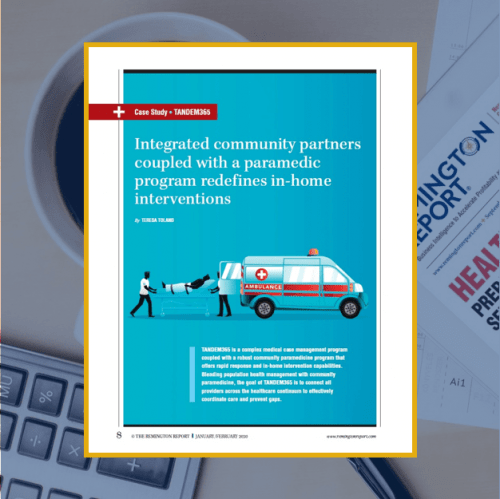 TANDEM365 is a complex medical case management program coupled with a robust community paramedicine program that offers rapid response and in-home intervention capabilities. Blending population health management with community paramedicine, the goal of TANDEM365 is to connect all providers across the healthcare continuum to effectively coordinate care and prevent gaps. This article is free to 1-Year Classic and 2-Year Premium subscribers.
TANDEM365 is a complex medical case management program coupled with a robust community paramedicine program that offers rapid response and in-home intervention capabilities. Blending population health management with community paramedicine, the goal of TANDEM365 is to connect all providers across the healthcare continuum to effectively coordinate care and prevent gaps. This article is free to 1-Year Classic and 2-Year Premium subscribers. -
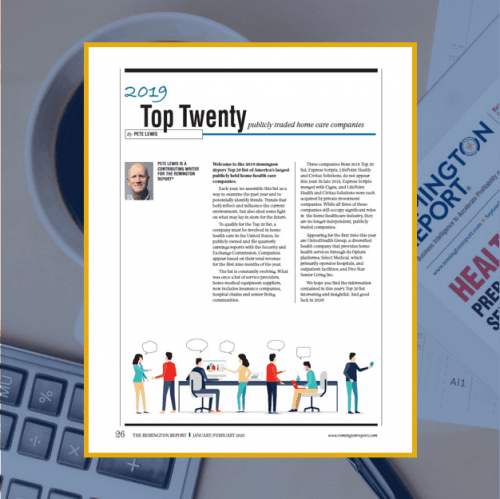 Each year, we assemble this list as a way to examine the past year and to potentially identify trends. Trends that both reflect and influence the current environment, but also shed some light on what may lay in store for the future. This article is free to 1-Year Classic and 2-Year Premium subscribers.
Each year, we assemble this list as a way to examine the past year and to potentially identify trends. Trends that both reflect and influence the current environment, but also shed some light on what may lay in store for the future. This article is free to 1-Year Classic and 2-Year Premium subscribers. -
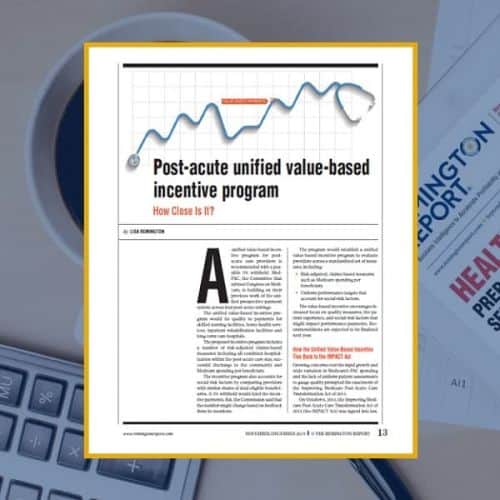 A unified value-based incentive program for post-acute care providers is recommended with a possible 5% withhold. Med-PAC is building on their previous work of the unified prospective payment system across four post-acute settings. This article is free to 1-Year Classic and 2-Year Premium subscribers.
A unified value-based incentive program for post-acute care providers is recommended with a possible 5% withhold. Med-PAC is building on their previous work of the unified prospective payment system across four post-acute settings. This article is free to 1-Year Classic and 2-Year Premium subscribers. -
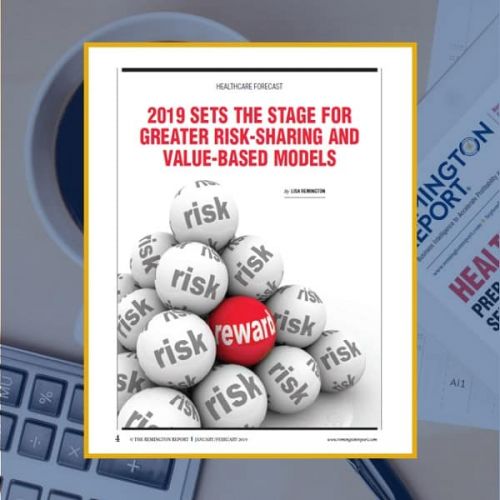 The race to value-based care is heating-up. In today?s healthcare landscape, value-based care is a hodge-podge of models. However, as we track changes to the healthcare infrastructure and payment reform, we see the escalation from fee-for-service models to value-based models supported by an increase in greater risk-sharing models. This article is free to 1-Year Classic and 2-Year Premium subscribers.
The race to value-based care is heating-up. In today?s healthcare landscape, value-based care is a hodge-podge of models. However, as we track changes to the healthcare infrastructure and payment reform, we see the escalation from fee-for-service models to value-based models supported by an increase in greater risk-sharing models. This article is free to 1-Year Classic and 2-Year Premium subscribers. -
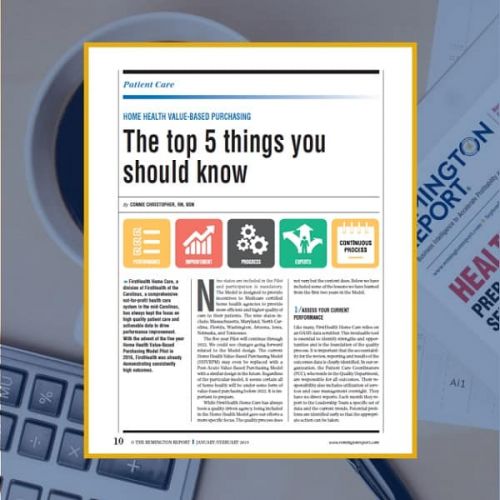 FirstHealth Home Care, a division of FirstHealth of the Carolinas, a comprehensive not-for-profit healthcare system in the mid-Carolinas, has always kept the focus on high quality patient care and actionable data to drive performance improvement. With the advent of the five year Home Health Value-Based Purchasing Model Pilot in 2016, FirstHealth was already demonstrating consistently high outcomes. This article is free to 1-Year Classic and 2-Year Premium subscribers.
FirstHealth Home Care, a division of FirstHealth of the Carolinas, a comprehensive not-for-profit healthcare system in the mid-Carolinas, has always kept the focus on high quality patient care and actionable data to drive performance improvement. With the advent of the five year Home Health Value-Based Purchasing Model Pilot in 2016, FirstHealth was already demonstrating consistently high outcomes. This article is free to 1-Year Classic and 2-Year Premium subscribers. -
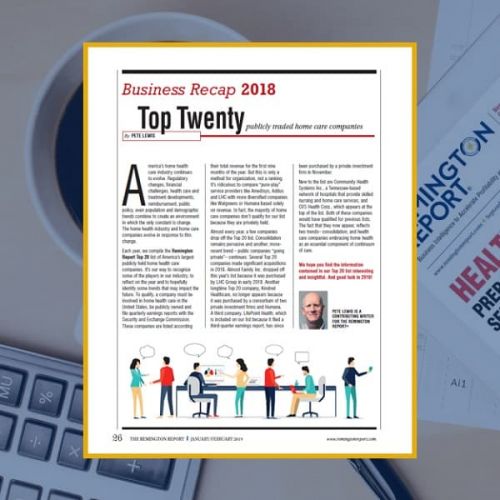 Each year, we compile The Remington Report Top 20 list of America?s largest publicly held home healthcare companies. It?s our way to recognize some of the players in our industry, to reflect on the year and to hopefully identify some trends that may impact the future. This article is free to 1-Year Classic and 2-Year Premium subscribers.
Each year, we compile The Remington Report Top 20 list of America?s largest publicly held home healthcare companies. It?s our way to recognize some of the players in our industry, to reflect on the year and to hopefully identify some trends that may impact the future. This article is free to 1-Year Classic and 2-Year Premium subscribers. -
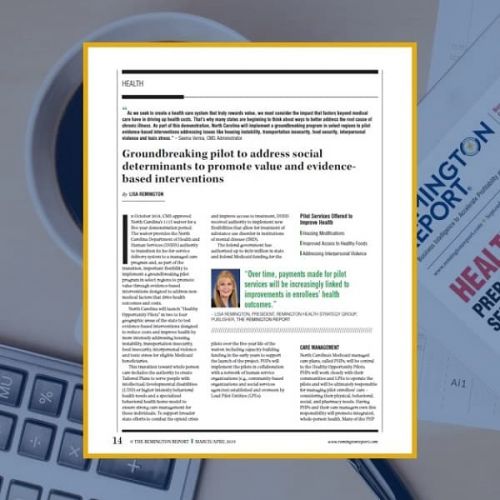 North Carolina will implement a groundbreaking program in select regions to pilot evidence-based interventions addressing issues like housing instability, transportation insecurity, food security, interpersonal violence and toxic stress. This article is free to 1-Year Classic and 2-Year Premium subscribers.
North Carolina will implement a groundbreaking program in select regions to pilot evidence-based interventions addressing issues like housing instability, transportation insecurity, food security, interpersonal violence and toxic stress. This article is free to 1-Year Classic and 2-Year Premium subscribers. -
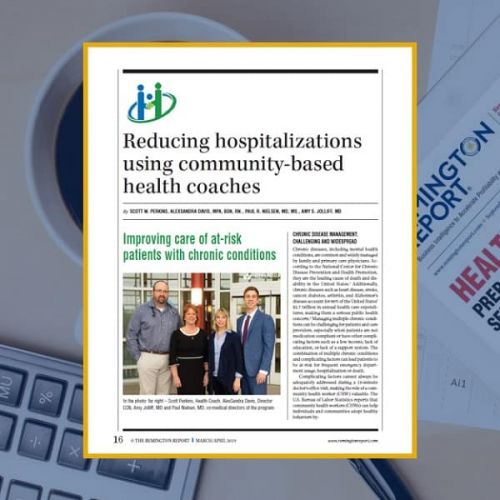 A recent study suggests health coaches could provide significant cost savings to patients and health systems, reduce patient hospitalizations and emergency department visits, improve patient health, and improve the quality of care for high-risk patient populations. This article is free to 1-Year Classic and 2-Year Premium subscribers.
A recent study suggests health coaches could provide significant cost savings to patients and health systems, reduce patient hospitalizations and emergency department visits, improve patient health, and improve the quality of care for high-risk patient populations. This article is free to 1-Year Classic and 2-Year Premium subscribers. -
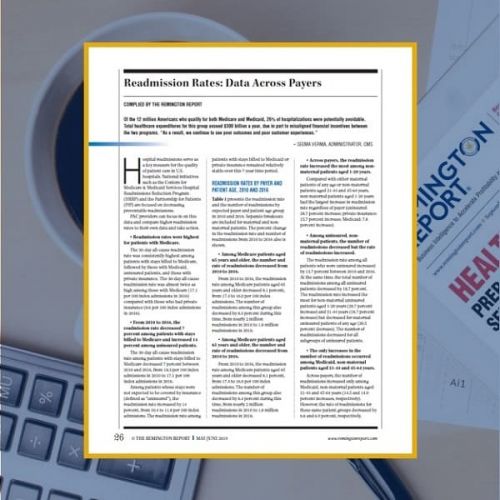 Of the 12 million Americans who qualify for both Medicare and Medicaid, 26% of hospitalizations were potentially avoidable. Total healthcare expenditures for this group exceed $300 billion a year, due in part to misaligned financial incentives between the two programs. This article is free to 1-Year Classic and 2-Year Premium subscribers.
Of the 12 million Americans who qualify for both Medicare and Medicaid, 26% of hospitalizations were potentially avoidable. Total healthcare expenditures for this group exceed $300 billion a year, due in part to misaligned financial incentives between the two programs. This article is free to 1-Year Classic and 2-Year Premium subscribers.
